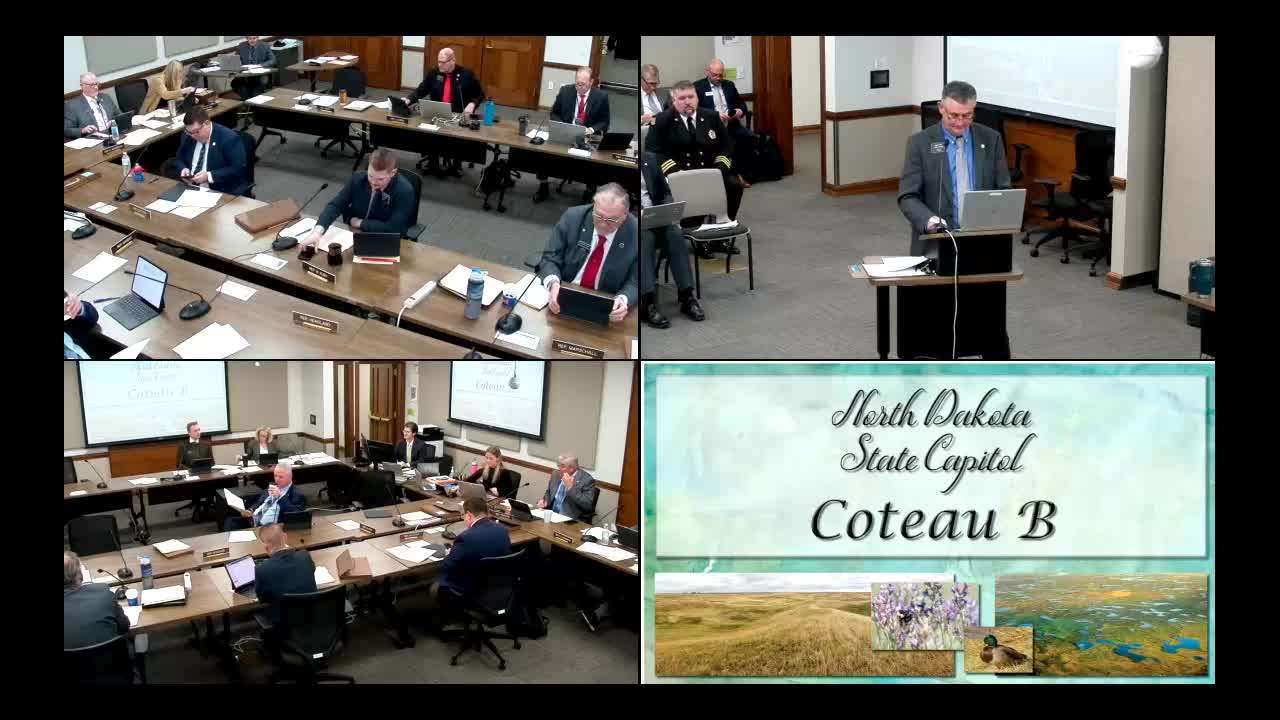Committee hears proposal for statewide study to bolster fire service after October wildfires
Get AI-powered insights, summaries, and transcripts
Subscribe
Summary
Lawmakers and fire officials urged the House Energy and Natural Resources Committee to approve a legislative management study to evaluate and strengthen North Dakota’s fire service preparedness, training and interagency coordination following large wildfires last fall.
Senator Greg Kessel, sponsor of Senate Bill 23‑40, told the House Energy and Natural Resources Committee the October wildfires “highlighted critical shortcomings in our state's emergency response capabilities.” He asked the committee to authorize a legislative management study to identify gaps in training, equipment, command structure and resource replenishment.
The bill would fund a study to assess current fire-response capabilities, identify resource shortfalls and produce recommendations to strengthen local and statewide response. “This study will assess current capabilities and identify gaps,” Kessel said, adding it would “develop a roadmap for enhancing state fire service preparedness and response capabilities.”
State Fire Marshal Doug Nelson said he supports the study and described on-the-ground strain observed during the October incidents. “When the state declares a long-lasting, multi-jurisdiction emergency and we are taxing our volunteer firefighter system, is there more that we can do?” Nelson asked rhetorically, then urged the committee to back a coordinated approach. He told lawmakers his office and local agencies can contribute expertise but lack capacity to address every emergent shortfall without a broader, funded planning effort.
Williston assistant fire chief Corey Johnson described working mutual‑aid responses during the Ray/Tioga fires and said the bill would help standardize staffing, training and regional planning. He said Williston and Williams County have improved local after‑action review processes but that statewide mechanisms would be needed to coordinate resources when multiple counties are taxed simultaneously.
Committee members asked practical questions about air resources, mutual aid and the role of the National Guard. Nelson and Johnson said National Guard aircraft and out‑of‑state “super scooper” airtankers were used in some incidents, but aircraft availability is constrained by weather and seasonality; both witnesses stressed the primacy of ground coordination and replenishment of volunteer crews.
Dennis Pathroff, representing investor‑owned utilities, said power companies support the study and offered to help coordinate infrastructure protection and utility input. No committee vote was recorded at the hearing; the bill’s formal next step was not decided during the session recorded in the transcript.
Why it matters: Lawmakers and first responders described a pattern of fast‑moving, recurrent wildfire incidents that stretched volunteer and local professional fire resources. Supporters said a focused legislative study could produce actionable recommendations to improve statewide coordination and reduce reliance on out‑of‑state federal assets.
Committee action: The hearing on SB 23‑40 was opened and closed; the transcript does not record a committee vote or formal referral.
